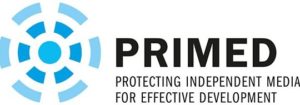The civil war and the Ebola crisis changed gender norms in favour of emancipation of women. Since then, progress has been made in expanding opportunities for women and girls to promote gender equality and empowerment of women. Nevertheless, gender inequality and denial of women’s rights are still prevalent at all levels in Sierra Leonean society. Many women continue to suffer marginalisation and discrimination, particularly in the areas of education, employment, political participation, and social justice. Issues of unequal opportunities for boys and girls continue to be exacerbated by factors such as early marriage for girls, and teenage pregnancies. Gender-based violence perpetrated against women and girls continues to be one of the most prevalent and pervasive problems. Even when armed with the tough new legislation, Sierra Leone’s legal system faces several hurdles in prosecuting sexual abuse cases. Understaffing and a lack of resources and equipment are common, while police, lawyers and judges are overworked and underpaid. Rural women are faced with financial extortion, flawed judicial processes and discrimination when accessing Local Courts. In terms of literacy, only 34.9% of women are literate versus 51.7% of men. In both urban and rural areas radio is the most consumed medium by women. Consumption rates of newspapers and television are very low for women in rural areas. The latter may be related to lack of electricity (only 51% of urban households and 2% of rural households have electricity). Forty-three percent of women and 64% of men have a mobile phone. Insufficient data is available on women in the media. Interviews with female journalists give the impression that: (1) many women in the media only report non-controversial news; (2) generally, men dominate producer, presenter and editor roles on radio and television; (3) sexism and sexual exploitation, abuse and harassment are prevalent in media houses; (4) low wages and inadequate resources to do investigate and report stories. The two associations for female journalists seem to be divided, which is a missed opportunity in terms of agency to influence donors and media houses. However, Sierra Leone has some influential female journalists and there are several radio programmes for women. A very interesting initiative comes from Media Matters for Women, producing inclusive podcasts in remote areas. And interactive radio shows seems to be successful in citizen engagement to increase accountability of local authorities.
This desk study was done for the PRIMED programme. The document is for internal use only. Apologies for the inconvenience.

